fulminant clostridium difficile
Definition
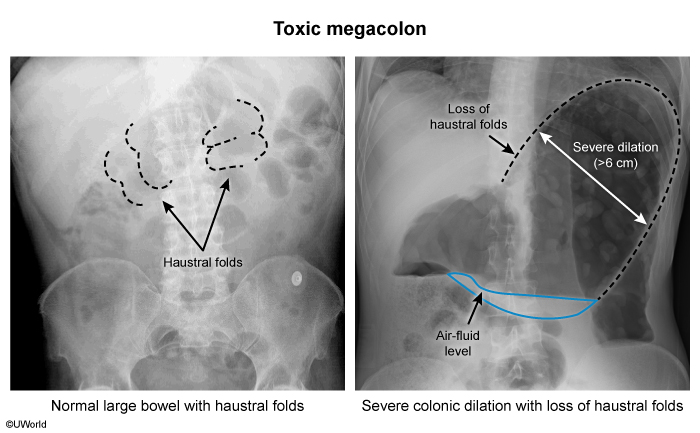
- IDSA define severe CDI by a leukocyte count ≥15,000/µL or a serum creatinine level >1.5 mg/dL. The American College of Gastroenterology defines severe CDI by the presence of hypoalbuminemia (<3 g/dL) plus leukocytosis (≥15,000/µL) or abdominal tenderness.
- Fulminant CDI is defined as severe infection complicated by ileus, hypotension, shock, or toxic megacolon (colonic diameter > 6 cm)
Treatment
- Medical therapy for fulminant CDI includes oral vancomycin (500 mg QID, NG or enema) plus intravenous metronidazole; vancomycin enemas may also be added if ileus is present. Complications are treated on an individual basis, although the presence of toxic megacolon requires surgical consultation to determine if emergent colectomy is indicated.
- Fecal microbiota transplant is effective for treatment of recurrent episodes of CDI, but it is not recommended for an initial episode of CDI, regardless of severity.
- Oral metronidazole alone for 10 days can be used for patients who present with an initial episode of nonsevere CDI when oral vancomycin or fidaxomicin is not available.
- Oral vancomycin alone for 10 days is recommended for treatment of an initial episode of nonsevere and severe CDI. Oral fidaxomicin can also be used.
- Oral metronidazole does not add benefit when used in addition to oral vancomycin.
Backlinks
-
Clostridium Difficile
clostridium difficile
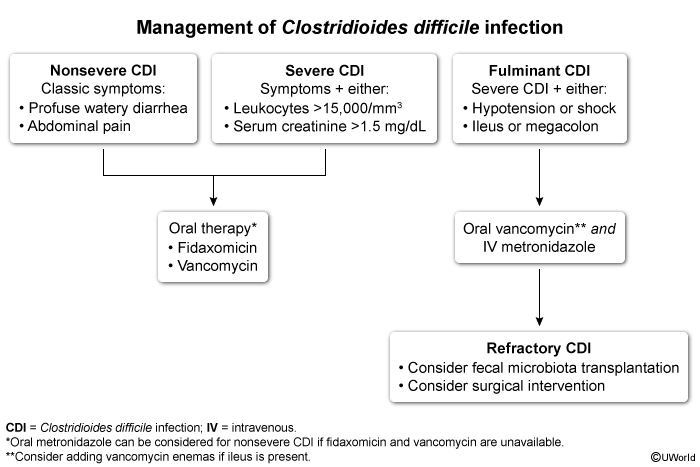
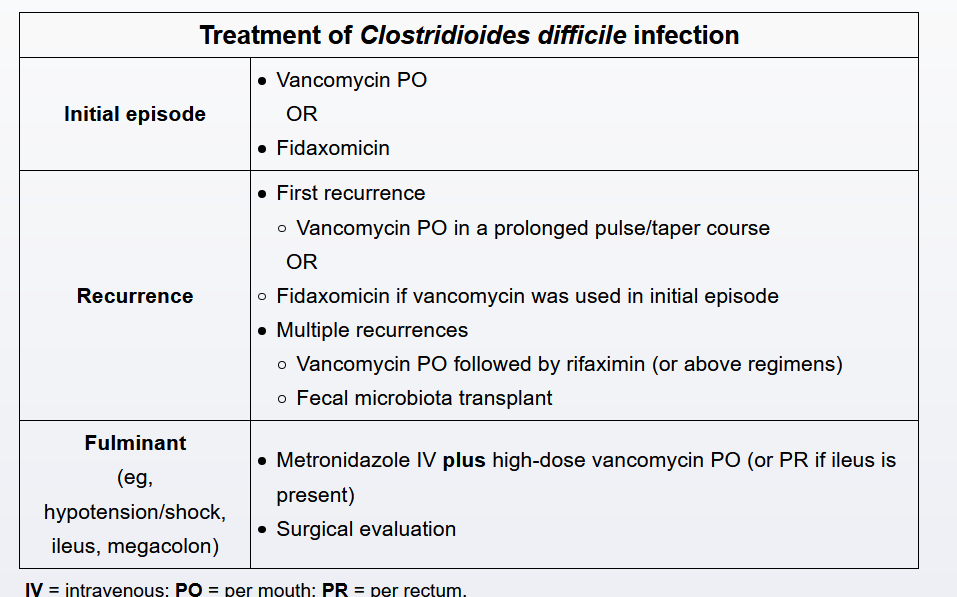
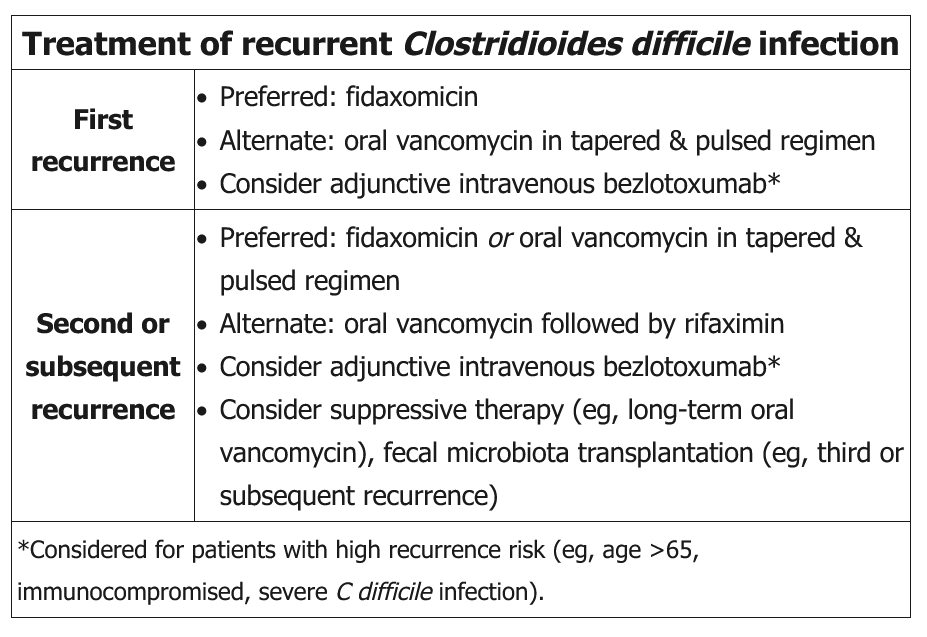
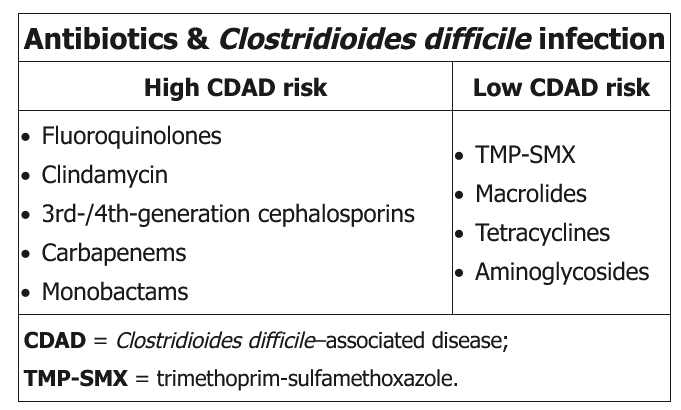
- Possibly restrict use of clindamycin, fluoroquinolones & cephalosp




